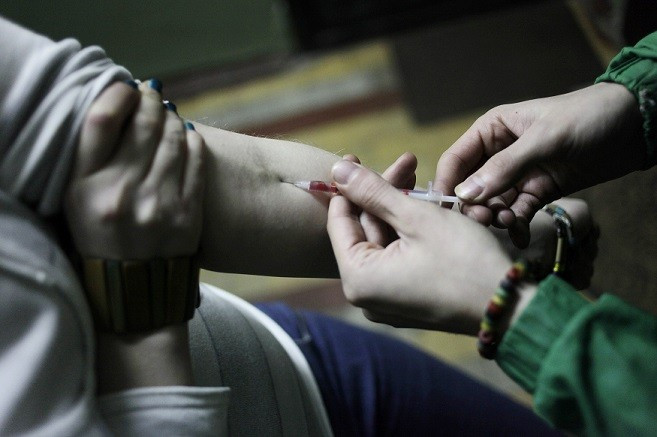Stop saying 'junkie' and 'crackhead' to end drug stigma, say world leaders
KEY POINTS
- Global Commission on Drug Policy report urges attitude change on drug users.
- Kofi Annan, Nick Clegg and Richard Branson say "vicious cycle" of stigma must end.
- Reports suggests terms such as "drug user", "addict" and "junkie" should not be used.
Several former world leaders are urging governments and lawmakers to end the "vicious cycle" of stigma against drug users, including drastically altering legislation and avoiding negative terms such as "drug abuse".
A report from the Global Commission on Drug Policy, an advocate group pushing more effective drug legislation, says current prejudices surrounding drugs and drug users have led to "unrealistic and stigmatising" perceptions influencing policy across the world.
The group, which includes former general secretary of the UN Kofi Annan, ex deputy prime minister Nick Clegg, Virgin Group founder Richard Branson and several former presidents and prime ministers, said more needed to be done to tackle common perceptions and fears about drugs that formed the background to "repressive policies".
Among the recommendations is a call to stop using words such as "junkie" and "crackhead". Such terms define people who use drugs as "others" and "physically inferior or morally flawed individuals", the report says.
It adds that negative language can also be used for those who are in recovery – calling them "clean", for example, suggests they were previously unclean or dirty. The term "drug abuse" can conjure up associations with more serious behaviour such as child abuse.
The group also advised avoided saying that a person was "addicted to" a certain drug. The phrase "has a [drug] use disorder" should be used instead.
Social discrimination
Ruth Dreifuss, former president of Switzerland: said: "For too long, drugs have been considered as substances that must be avoided at all costs; people who use drugs have been rejected by society and perceived as asocial, depraved or deviant.
"Prejudices and fears surrounding drugs are expressed in stigmatising language. Stigmatsation leads to social discrimination and repressive laws and prohibition validates fears and prejudices. This vicious cycle must be broken."
She added: "Governments are responsible for correcting false perceptions of drugs and people who use them by providing evidence-based information, which is easily and widely accessible.
"In their speeches and by their very attitude, political and religious leaders must show their respect for the dignity and rights of all citizens, particularly the most vulnerable and those who are victims of social stigma."

The reports also urges an end to inaccurate portrayals of addiction, including the perception that anyone who takes recreational drugs will automatically be hooked.
According to the report, around 250 million people admitted to taking illegal drugs in 2016, with an estimated 11.5% considered to suffer problematic drug use or addiction.
Clegg, who has advocated change in UK drug laws, said: "Current drug policies are all too often based on perceptions and passionate beliefs, not facts.
"Any drug use carries risks but only a small number of people who use drugs go on to face addiction or dependency. Those who do develop problems need our help not the threat of criminal punishment."
José Ramos-Horta, former president of Timor-Leste and Nobel Peace Prize laureate, added: "The prejudices faced by people who use drugs and the criminalisation of their drug use are a violation of their citizens' rights.
"In order to change how people who use drugs are treated, we need to change how we speak about them and how we consider their use in a comprehensive manner, including all social and economic determinants linked to it."






















